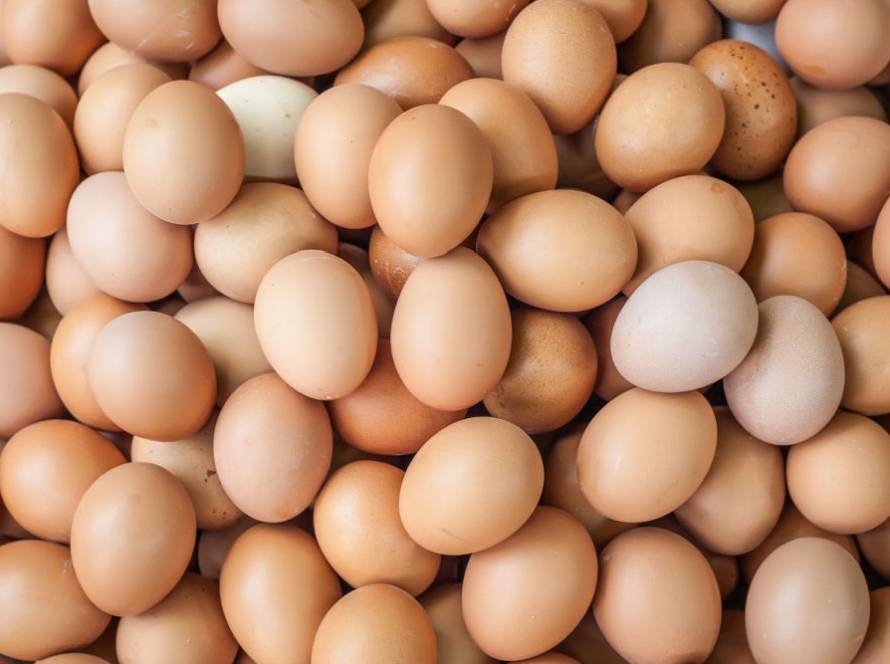Carbohydrates provide more than 50% of our daily energy. This raises a question many people wonder about – why do carbs become unhealthy in certain forms? The answer doesn’t lie in how much we eat, but in the type of carbohydrates we choose.
In this piece, we’ll get into what happens when we eat too many carbs. We’ll learn why refined carbs harm our health and discover surprising links between carbohydrate intake and our physical and mental wellbeing, all backed by current scientific research.
What makes some carbs bad for our health?
Carbs are often considered unhealthy because many common sources are highly processed and digested too quickly. This can cause spikes in blood sugar, increase fat storage and raise the risk of chronic diseases. The real issue is not carbs in general, but the overconsumption of refined, low-fiber carbohydrates.
What are carbohydrates and how do they work in the body?
The human body needs carbohydrates as one of three vital macronutrients that work with proteins and fats. These biomolecules consist of carbon, hydrogen and oxygen atoms with a hydrogen-to-oxygen ratio of 2:1.
Carbs as a macronutrient: glucose and energy
Our body uses carbohydrates as its main energy source. The digestive system breaks them down into glucose (blood sugar). This molecule powers our cells, tissues and organs. Life as we know it wouldn’t exist without glucose.
Cells combine glucose with oxygen to release energy through cellular respiration. This process creates carbon dioxide and water as byproducts. A single glucose molecule broken down through aerobic respiration produces about 30-32 molecules of ATP, the cell’s energy currency. Carbohydrates give us 4 kilocalories of energy per gram. This makes them the quickest way to fuel bodily functions, especially our brain’s activity.
Different types: monosaccharides, disaccharides, polysaccharides
Scientists classify carbohydrates into three major groups based on their molecular complexity:
- Monosaccharides: simple sugars with the formula (CH2O)n, including glucose (the body’s preferred energy source), fructose (found in fruits) and galactose (part of milk sugar);
- Disaccharides: formed when two monosaccharides join through a dehydration synthesis reaction, such as sucrose (table sugar), lactose (milk sugar) and maltose (malt sugar);
- Polysaccharides: long chains of monosaccharides linked by glycosidic bonds, including starch (plant energy storage), glycogen (animal energy storage) and cellulose (plant cell walls).
How carbs are digested and stored
Our digestive process starts in our mouth. Salivary amylase begins breaking down starches right away. Food moves through our digestive tract while pancreatic amylase in the small intestine breaks complex carbs into dextrin and maltose.
Special enzymes, lactase, sucrase and maltase, turn these compounds into simple sugars. Our body absorbs these through the intestinal wall into our bloodstream. Our liver processes these sugars next. It either sends glucose throughout our body via blood circulation or stores extra amounts as glycogen.
Our pancreas releases insulin after blood glucose levels increase. This helps our cells absorb glucose to use immediately or store for later. Our liver and skeletal muscles store glycogen. Muscle glycogen runs out after about an hour of intense exercise. Liver glycogen lasts between 12-24 hours during fasting.
Refined vs whole carbs: why quality matters
Carbohydrates don’t all work the same way in our bodies. Processing changes how carbs interact with our biological systems. This explains why some carbs can harm health despite coming from the same macronutrient family.
What are refined carbs?
Processing strips away the bran and germ from whole grains to create refined carbohydrates. This removes fiber, vitamins, minerals and other beneficial compounds. The refining makes food last longer and creates smoother texture but loses nutritional value. We’ll find refined carbs in:
- White bread, pasta and rice;
- Breakfast cereals and waffles;
- Pastries and sweets;
- Sugar-sweetened beverages;
- Processed snack foods.
These foods get called “empty calories” because they give energy without offering much nutrition.
Why are refined carbs unhealthy?
Our body digests refined carbs faster, which makes blood sugar and insulin levels jump up and down quickly. This metabolic rollercoaster makes us hungry soon after eating and often leads to overeating and weight gain. High refined carb intake also raises triglyceride levels and makes cells resist insulin.
Eating refined carbohydrates for years has been linked to many health problems like obesity, heart disease, type 2 diabetes and high blood pressure. Research shows people who eat the most refined carbs face two to three times higher risk of heart disease than those who eat the least.
Whole carbs and their benefits
Whole carbohydrates keep their natural fiber, vitamins, minerals and helpful plant compounds. Studies show whole grain foods lower our risk of heart disease, stroke and type 2 diabetes. America’s Dietary Guidelines suggest making at least half of our grain choices whole grains.
Fiber works like a sponge in carbohydrates that we can’t digest. It helps remove LDL cholesterol, makes us feel full and keeps our bowels moving regularly.
Effect on blood sugar and insulin response
The glycemic index (GI) shows how fast foods raise blood sugar. Most fruits, vegetables, beans and minimally processed grains rank low on GI and raise blood sugar slowly. Foods like white bread and rice cakes rank high and spike blood sugar faster.
Blood sugar spikes happening often can make cells stop responding well to insulin. This condition, called insulin resistance, makes us more likely to get type 2 diabetes.
How excess carbs affect our health
Eating too many carbs does more than just make us gain weight. It triggers complex metabolic changes throughout our body.
Do carbs turn into fat?
The simple answer is yes. Our liver turns extra sugars into fats through a process called de novo lipogenesis if we eat more carbs than our body needs. This happens mostly in our liver and fat tissue cells. Insulin tells fat cells to absorb and store these new fats. The key to managing weight depends on watching our total calories rather than just controlling insulin.
Insulin resistance and metabolic syndrome
Diets high in carbs, especially refined ones, can lead to insulin resistance. This happens when our cells stop responding to insulin’s signals. Research shows that cutting back on carbs can improve and reverse metabolic syndrome without needing to lose weight. People who eat more carbs face a 34% increased risk of metabolic syndrome compared to those who eat less, according to studies.
Chronic inflammation and oxidative stress
Research shows that high-carb diets relate to higher inflammation markers. The total amount of carbs we eat links to increased levels of inflammatory compounds like MCP-1 and TGF-β. The period after eating carbs can cause oxidation and the amount of oxidative stress depends on how many carbs we ate. Refined carbs speed up free radical production and create oxidative stress quickly.
Links to type 2 diabetes and heart disease
Eating too many carbs raises our risk of cardiovascular disease by a lot. Switching from saturated fats to refined carbs doesn’t make our heart healthier. The rise in type 2 diabetes throughout the 1900s matched the increase in refined carbs like corn syrup and the decrease in fiber intake.
Carbs and non-alcoholic fatty liver disease (NAFLD)
NAFLD has become more common as obesity rates have increased. Carbs, especially free sugars, make our liver produce more fat, which builds up over time. Both glucose and fructose increase liver fat content when we eat too much. Fructose causes more problems because it skips a major rate-limiting step in glycolysis.
The role of carbs in mental and gut health
Carbohydrates do more than just fuel our metabolism. They play a vital role in how our brain works and keep our gut healthy. These relationships shape our mental wellbeing in complex ways.
Carbs and serotonin: mood and behavior
Our brain’s chemistry responds directly to carbohydrates through serotonin production. Eating meals rich in carbs but low in protein triggers insulin release. This helps tryptophan enter the brain and boosts serotonin production. High-protein meals don’t raise tryptophan and serotonin levels the way carb-based meals do.
Gut microbiota and fiber fermentation
Our gut microbiome runs on dietary fiber, complex carbs that pass undigested until they reach the colon. Soluble, fermentable fiber helps microbes produce more short-chain fatty acids (SCFAs), mainly acetate, propionate and butyrate. These compounds strengthen the gut barrier, balance glucose levels and fight inflammation. Research shows that eating fewer carbs reduces the numbers of important butyrate-producing bacteria.
Simple carbs’ effect on mental health
Quick shifts in blood sugar from refined carbs can harm our mental health. A 2019 study revealed that eating sugar over time changes neural pathways and weakens impulse control. Blood sugar spikes trigger hormones like cortisol and adrenaline that link to anxiety and depression. The brain might try to self-medicate mood issues through carb cravings.
Research on gut-brain axis and carbohydrate intake
The gut-brain axis shows how our intestinal microbes talk to our central nervous system and vice versa. SCFAs from fiber fermentation help carry these messages. Scientists found that gut bacteria make large amounts of amyloids that affect Alzheimer’s disease development. The gut produces 95% of our body’s serotonin, which shows how gut health shapes our mental state.
Looking at the evidence shows that carbohydrates aren’t bad by nature. The health effects depend on their type, quality and how much we eat. Complex carbohydrates from whole foods give us essential nutrients, fiber and lasting energy. Refined carbohydrates, however, destabilize blood sugar levels and cause inflammation that leads to various chronic diseases. Better carbohydrate choices can improve our immediate well-being and long-term health outcomes.


